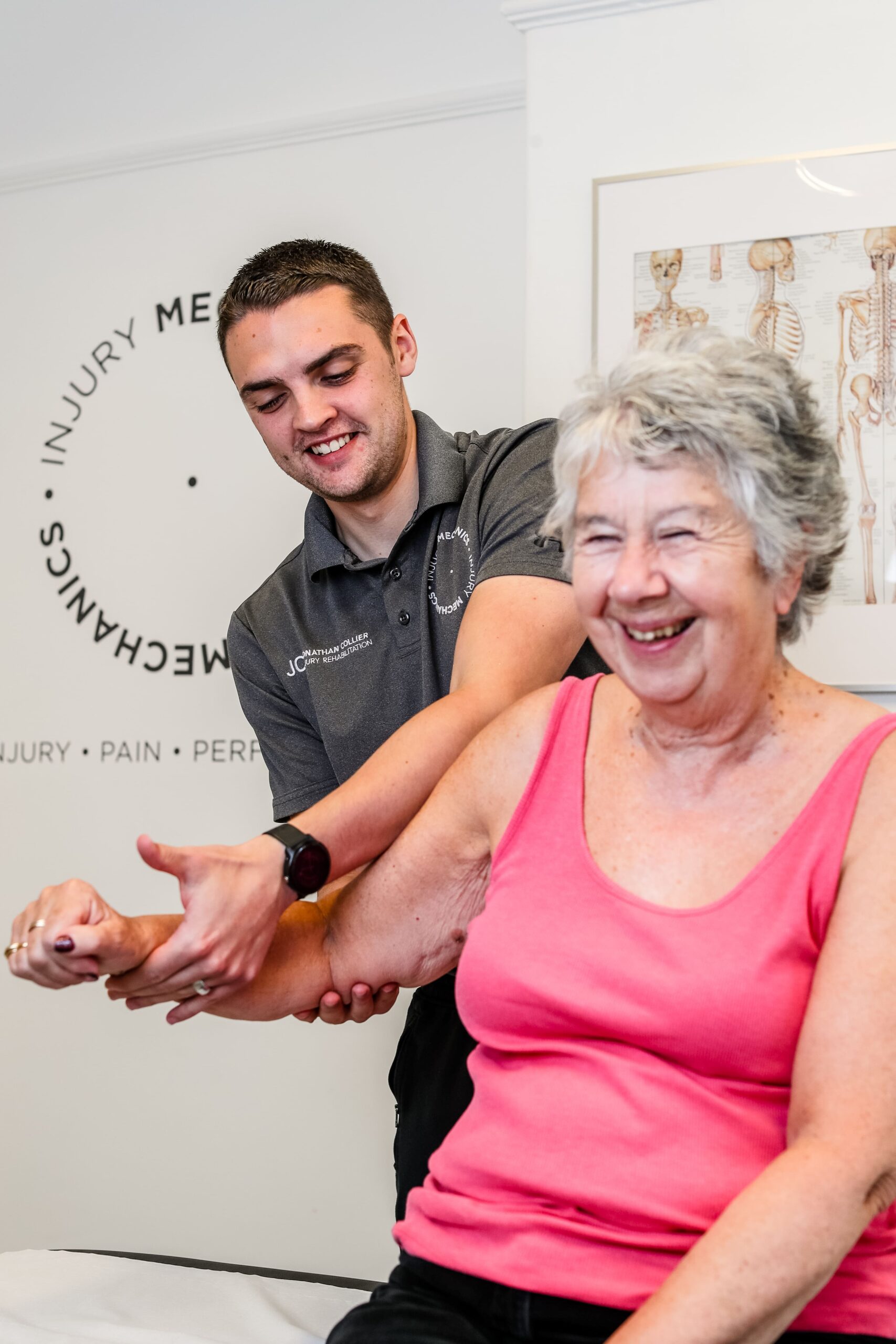Exercise Physiology Services
Exercise physiology services help with improving performance in a number of different ways. Your physiologist will look at prevention and rehabilitation, athletic development and performance, and lab-based assessments to see how best to support your development and improvement.
What is exercise physiology?
Exercise physiology is the physiology of physical exercise. It aims to describe and explain acute exercise and the body’s adaptation to training. This is done to help patients reach their maximum potential, by understanding the impact of both short and long term physical activity on the body.
What will an exercise physiologist do during our sessions?
An exercise physiologist has three main roles all centering around improving performance.

1
Injury prevention and rehabilitation
For rehabilitation, we generally start working with clients alongside therapists to help rebuild stability, strength and confidence in an injured area while with injury prevention, we focus on strengthening commonly injured areas with the goal of stopping injuries from occurring.
2
Athletic development and performance
This aspect is most commonly worked at in the gym where we look at what areas we could help someone improve upon that will benefit performance the most.
3
Lab-based
This is where through taking measurements and blood samples, we can assess health, different aspects of fitness and athletic potential in clients. These measurements can include things such as lung function, body fat and muscle percentage, muscular power, flexibility, VO2max and lactate threshold, among others.
How do you know if you need an exercise physiologist?
You might need to see an exercise physiologist if you have a chronic condition, injury, or disability. They might help you look at how to manage these things, or the best ways to recover from injury.
An exercise physiologist may also be right for you if you’re looking to lose weight, or manage a recurring injury. You might be recommended to a physiologist through another professional such as a doctor, nurse, or physiotherapist.
Book in With Our Team Today!
How exercise physiology can help you
Here are some of the ways exercise physiology can be used to help you:
1
Tailored exercise programs
Your physiologist will take your goals onboard and deliver a personalised program which will target the right areas and get you to where you want to be. Certain exercises will be optimal for you reaching your goals, whether these exercises targeted at weight-loss, or specific area rehabilitation.
2
Mental health and independence
Exercise physiology can be used to help improve mental health, increase attention span and promote independence. This could be an elderly person regaining control of their joints to move around more freely, or through rehabilitation allowing a person to return to their regular, independent lifestyle.
3
Manage chronic conditions/pain
Through meticulously prepared exercise plans, you can manage the side effects of chronic illnesses or recurring injuries. For example, your physiologist might be able to help you improve blood glucose control if you are diabetic.
4
Work towards goals
Be it a minor or major goal, exercise physiology can be used within a gym setting to achieve certain goals such as athletic competition.
Exercise physiology can be used to aid you in reaching your personal fitness or lifestyle goals in a wide range of ways. Be sure to fill out our form at the bottom of this page if you have any questions or queries.
Exercise physiology services at Injury Mechanics
For further information on how we at Injury Mechanics can assist you through the assessment of your physiology, you can book your Physiology Consultation via our online booking system or contact us below.
Become a Client Today
Our team are known to be approachable, professional, friendly, knowledgeable, caring and down to earth. If you would like to book an appointment with the Injury Mechanics team, fill out the contact form or use our simple online appointment booking system.

Become a Client Today
Our team are known to be approachable, professional, friendly, knowledgeable, caring and down to earth. If you would like to book an appointment with the Injury Mechanics team, fill out the contact form or use our simple online appointment booking system.

Related blogs

How Pilates Can Help with Sports Injury Recovery
Pilates aims to provide a safe and effective means of strengthening your

Pilates After Surgery: Can it Be Done Safely?
Is pilates effective for rehabilitation?Pilates is very effective for rehabilitation because it can

Pilates for Injury Rehabilitation: How it Works
What's the difference between Pilates and standard exercise for rehabilitation?Pilates and more
